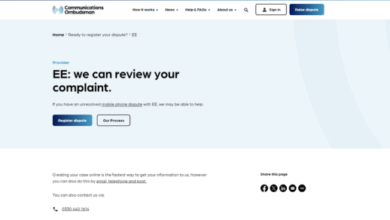
Debt Consolidation: A Roadmap to Financial Freedom is a financial strategy that can help individuals manage and reduce their debt burden. Here are 30 points outlining the pros and cons of debt consolidation:
Pros:
- Simplified Finances: Debt consolidation combines multiple debts into a single monthly payment, simplifying financial management.
- Lower Interest Rates: It can lead to lower interest rates, reducing the overall cost of borrowing.
- Reduced Monthly Payments: Debt consolidation often results in lower monthly payments, making it easier to budget.
- Fixed Interest Rates: Some consolidation methods offer fixed interest rates, providing stability.
- Faster Debt Repayment: Consolidation may help you pay off debt more quickly, saving money in the long run.
- Credit Score Improvement: Timely payments on a consolidated loan can boost your credit score.
- End to Creditor Harassment: It can stop collection calls and creditor harassment.
- Potential for Single Lender: You may deal with a single lender, streamlining communication.
- Reduced Stress: Consolidation can reduce the stress associated with managing multiple debts.
- Financial Discipline: It encourages disciplined financial behavior.
- Preservation of Assets: Consolidation may allow you to keep assets like your home or car.
- Interest Tax Deductions: Some consolidation methods may offer tax-deductible interest payments.
- Budget Planning: It facilitates better budget planning and financial control.
- Avoidance of Bankruptcy: Debt consolidation can be an alternative to bankruptcy.
- Preservation of Credit Score: It can help prevent further damage to your credit score.
- Financial Education: The process can provide valuable financial education and awareness.
- Savings Potential: Lower interest rates can result in significant savings over time.
- Flexibility: Multiple consolidation methods are available, allowing you to choose the one that fits your needs.
- Ownership Control: You retain ownership and control over your assets.
- Consolidation Perks: Some lenders offer additional benefits, like rate reductions for on-time payments.
Cons:
- Not a Debt Eraser: Debt consolidation does not eliminate your debt; it restructures it.
- Interest Costs: You may still pay a substantial amount in interest over the life of the consolidated loan.
- Qualification Challenges: Qualifying for consolidation may be difficult if you have a poor credit score.
- Extended Loan Terms: Extending the repayment term can result in paying more interest over time.
- Origination Fees: Some consolidation loans come with origination fees.
- Collateral Risk: Secured consolidation loans put collateral at risk if you default.
- Credit Impact: The process may initially lower your credit score before improving it.
- Temptation to Accumulate More Debt: Consolidation can create a false sense of financial relief, leading to more debt accumulation.
- High Debt Levels: Consolidation may not be suitable for individuals with extremely high debt levels.
- Interest Rate Increases: Some consolidation loans have variable interest rates that may increase.
- Balance Transfer Fees: Credit card balance transfers may involve fees.
- Unsecured Debt: Consolidating unsecured debt with secured loans can put assets at risk.
- Debt Repayment Length: Extending the loan term can lead to a longer time in debt.
- Default Risk: Missing payments can have serious consequences, including higher interest rates.
- Not a Quick Fix: Debt consolidation is not a quick solution; it requires commitment and discipline.
- Limited to Certain Debts: Some types of debt cannot be consolidated, such as student loans.
- Financial Advisor Costs: Seeking professional advice may involve fees.
- Credit Counseling Requirements: Some methods may require credit counseling before consolidation.
- Potential for Relapse: After consolidation, some individuals may revert to old spending habits.
- Loss of Grace Periods: Credit cards paid off through consolidation may lose grace periods.
Debt consolidation can be a valuable tool for achieving financial freedom, but it’s essential to carefully evaluate the pros and cons, consider your financial situation, and choose a consolidation method that aligns with your goals and ability to manage debt responsibly.




